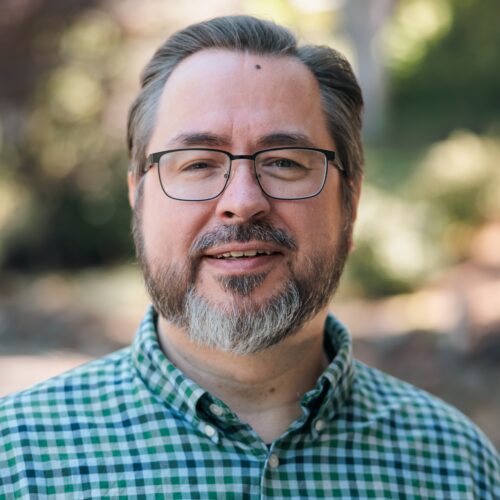
Dr. Ryan Connor
Associate Professor of Clinical Mental Health Counseling
Education
- Ph.D., University of the Cumberlands
- D.Min., Lincoln Christian Seminary
- M.A., Marshall University
- B.S., Southern Christian University
About Dr. Connor
Dr. Connor teaches in Corban’s M.A. in Clinical Mental Health Counseling program and provides clinical supervision support for graduate counseling interns at Corban’s two mental health clinics. Special areas of interest include couple and family counseling, crisis and trauma counseling, grief and loss, anxiety and obsessive-compulsive disorders, pastor care, healthy spirituality and unhealthy religiosity, and counselor supervision.
Prior to coming to Corban, Dr. Connor worked in number of clinical settings, including the Prestera Center for Mental Health, the Family Resource Center at Women and Children’s Hospital (Charleston, WV), church-based counseling centers, and private practice. He has also taught as an adjunct at Bushnell University. Dr. Connor is a licensed professional Counselor (LPC) and an Oregon Board approved LPC & LMFT Clinical Supervisor.
Dr. Connor has also served in pastoral ministry for over 20 years, serving churches in California, West Virginia, and Oregon.
Recently Taught Courses
Explore major counseling models including psychodynamic, behavioral, humanistic, and family systems approaches. Discover how these theories have developed historically, and critically evaluate them through biblical, scientific, and cultural perspectives as you begin shaping your own framework for helping others.
Learn how to help families grow and heal. This course introduces systems theory and family dynamics, equipping you with essential techniques to support marriages, parent-child relationships, and child-focused interventions.
Integrate biblical doctrine with clinical counseling. Explore core theological topics—such as sin, salvation, and sanctification—and develop a biblically grounded theory of change and human nature that informs your counseling worldview.
Learn how psychotropic medications impact mental health treatment. Understand the ethical and clinical responsibilities of non-medical counselors in collaborating with healthcare providers and making informed referrals.
Listening deeply is the only way to understand anyone. Counseling provides a person with the gift of being understood. Becoming an effective counselor is all about the art of listening deeply.
Dr. Ryan Connor
Fellow Faculty

Dr. Amanda Egan
Assistant Professor of Clinical Mental Health Counseling
aegan@corban.edu(503) 375-7174






